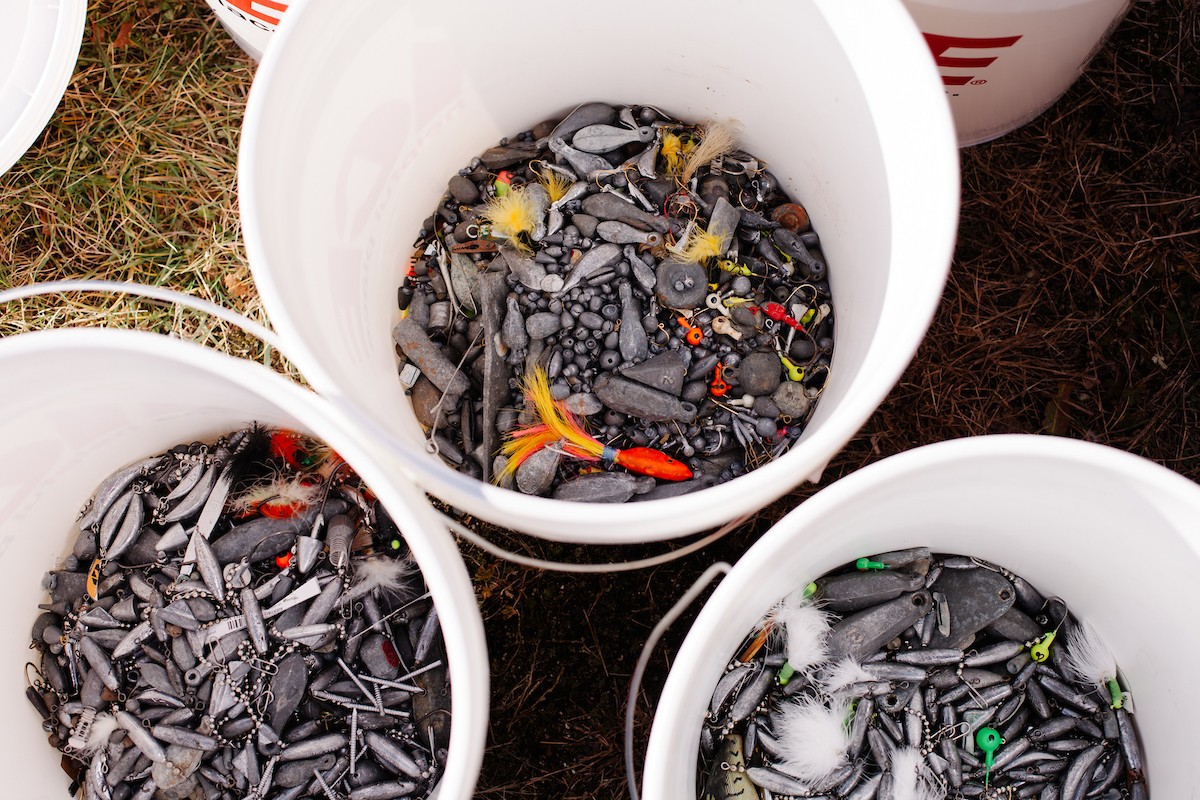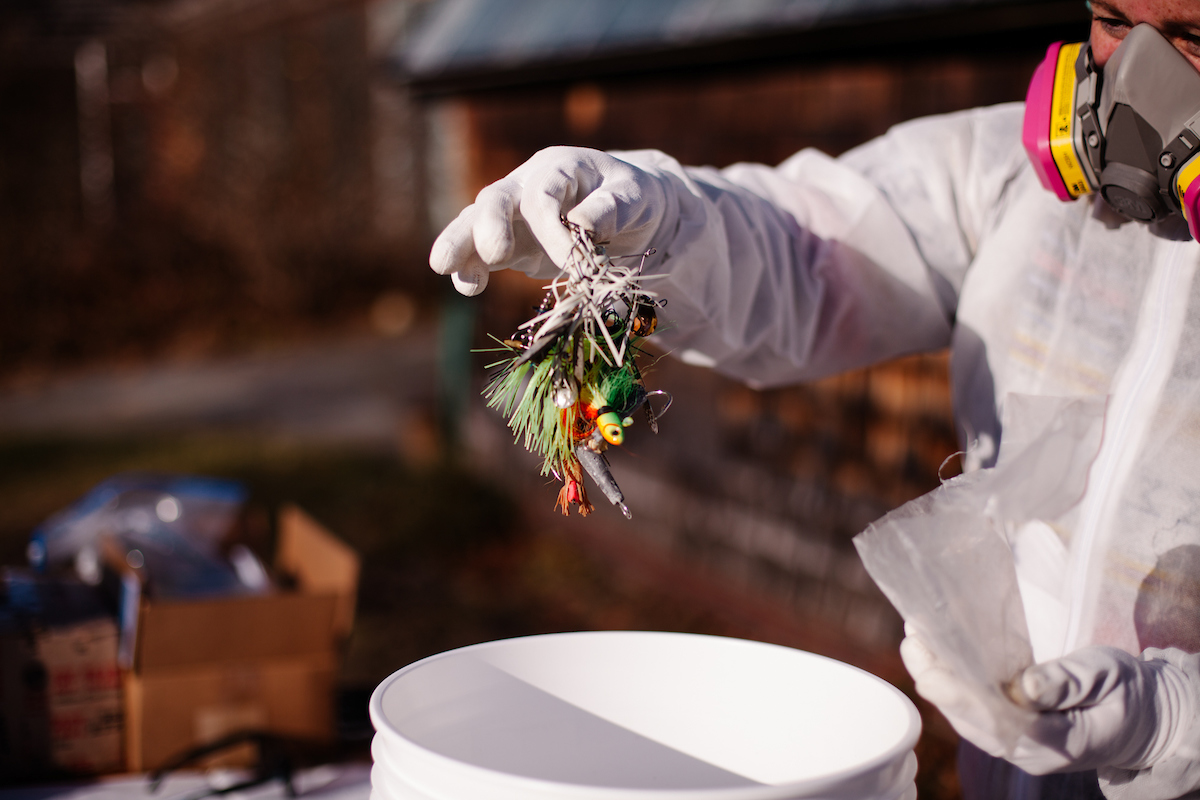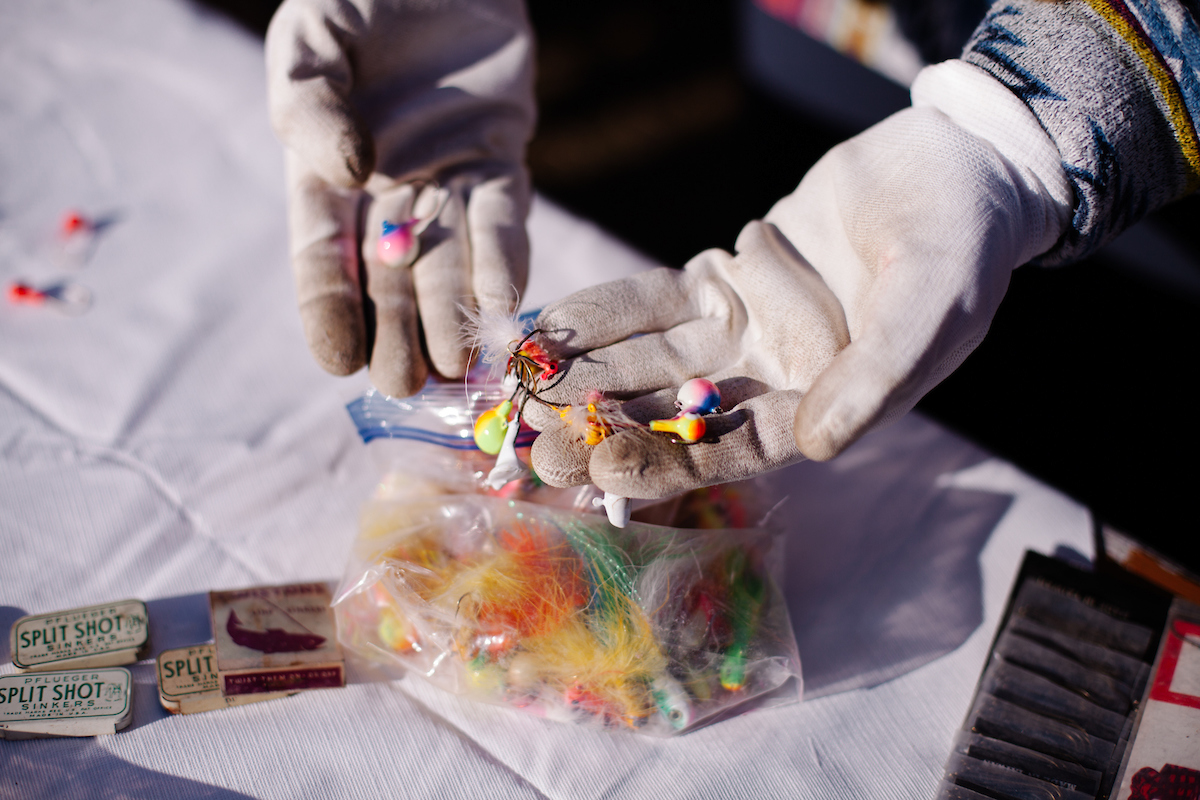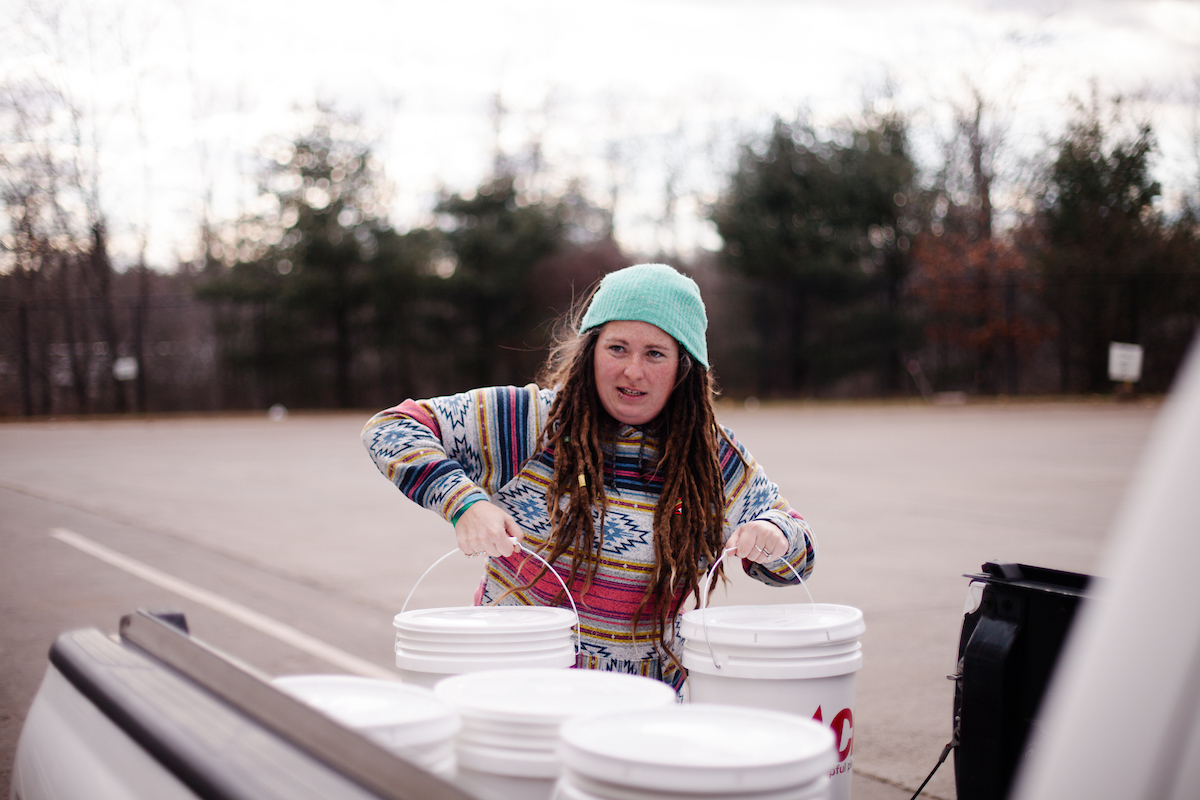
We recycled 218 POUNDS of lead fishing tackle this past week!
Maine Audubon has been collecting lead tackle from anglers across the state for about ten years through our Fish Lead Free initiative to reduce loon deaths. It only takes a loon ingesting one small piece of lead tackle to result in the slow and painful death that results from lead poisoning. Loons ingest lead either by eating a fish that has lead in it or by picking it up along with gravel on lake bottoms (which they do to aid in digestion). Maine prohibits the sale and use of small-sized lead sinkers and unpainted jigs to protect loons from these hazards. This includes tackle that is less than or equal to 1 ounce in weight or 2.5 inches in length. To help get this lead out of circulation, Maine Audubon has hosted many exchange and buyback events throughout Maine where anglers can trade in their lead tackle for lead-free alternatives.
As an end-of-the-year clean out, we recently sorted all the lead tackle that’s been collected to date and took it to the recycling center. All those small lead sinkers and jigs will be melted down and then repurposed for other products that are still made with lead such as wheel weights for cars or batteries.
What did that sorting process look like? Decked out in protective gear—respirator, gloves, and coveralls—we first picked through all of the boxes, bags, containers, and tackle boxes to remove non-lead material. We then dumped all of the lead tackle into five gallon buckets, filling them about one quarter of the way, because lead is heavy (218 pounds is heavier than a refrigerator!).

What did we find? The majority of that tackle fell within that small size category so there were thousands and thousands of pieces. There were at least 50 of those round plastic spinning split shot containers that hold anywhere from 25 to 200 pieces of lead, depending on the size of the split shot. Along with the split shot, there were weights of all shapes and sizes—bullet weights, rubber grip, you name it. We also had many jig heads, bare and painted, of varying sizes with most falling within that small size category. There were a variety of artificial lures containing lead that were in the mix as well as some lead core fishing line. We had a fair amount of the larger sized lead weights that do not fall into the illegal category, but getting any lead, no matter what size, out of anglers’ tackle boxes is the goal! That’s less lead that could potentially get lost and left on lake or ocean bottoms.

While sorting, we found some interesting old packaging. For example, there were these teeny, about 1-inch-long by ½-inch-wide, little tins that looked like a license plate on the front and slid open to hold split shot inside. Other interesting items (that I didn’t even know existed) were lead twist ties that you can attach to your line to add weight. They were packaged exactly as a matchbook but when you opened them there was a thin sheet of lead cut into thin strips that you could peel off and then twist onto your line. Today there are many non-lead alternatives to use instead of these lead options.
All in all, we ended up with five buckets to take to the recycling center: a total of 218 POUNDS of lead fishing tackle removed from anglers’ tackle boxes!

Remember: the sale and use of lead sinkers and bare jigs weighing one ounce or less or measuring 2 ½ inches in length or less is prohibited in Maine. And thanks to a new law passed in 2023, beginning September 1, 2024, the sale of painted lead jigs within the small size range is prohibited. Starting September 1, 2026, the use of painted jigs within the small size range is prohibited. So if you still have lead in your tackle box and want to recycle it, come find us at the Orono, Presque Isle, or Augusta sporting shows this coming spring to swap out your lead for some lead-free alternatives! Or drop your lead off at either of our Nature Centers at Gilsland Farm in Falmouth or Fields Pond in Holden.
For more information, visit maineaudubon.org/FLF.
Photos by Natalie Conn
